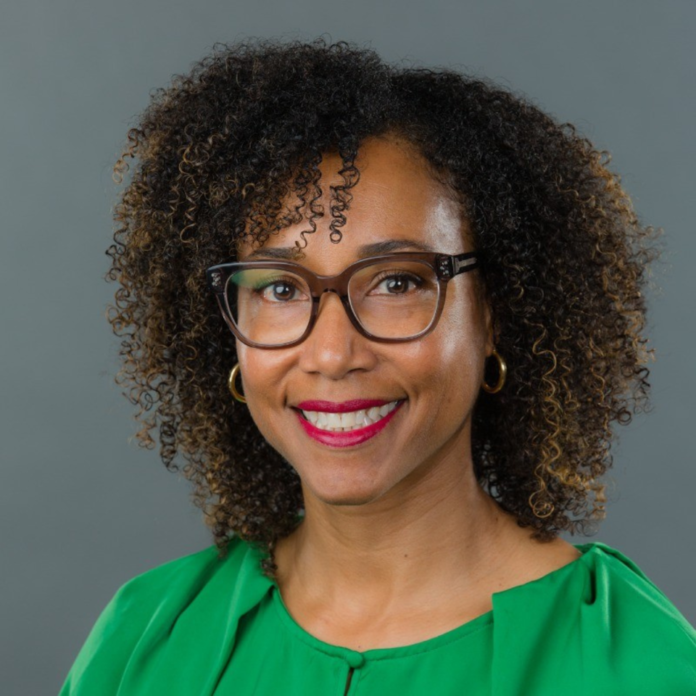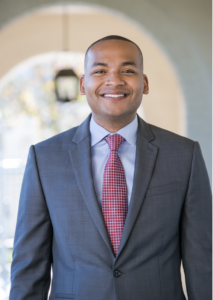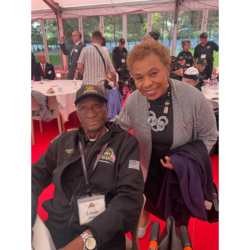
By Bo Tefu, California Black Media
Three Black Californians Assume Top Leadership Roles at Weingart Foundation
On June 7, the Board of Directors of the Weingart Foundation, a private non-profit grantmaking organization focused on racial justice announced that it has voted to appoint Joanna S. Jackson as its new President and C.E.O.
That same day, the Weingart Foundation board also voted to elect Dr. Robert K. Ross as the Foundation’s Board chair. Ross is the former CEO of The California Endowment.
Jackson, who has been serving as interim president, is the second African American woman to assume a top leadership at the Weingart Foundation in less than two months. On May 13, the organization announced that it had named another Black woman, Crystal Crawford, as its inaugural Director of Strategic Partnerships.
“Following a competitive C.E.O. search process, the Board determined that Joanna Jackson was our clear choice to serve as the Foundation’s President and C.E.O.,” said Monica Lozano, immediate past chair of the Weingart Foundation Board, and chair of the C.E.O. search committee.
“With the support of our consultants, Koya Partners, we gathered input from board, staff, grantee partners, civic and community leaders and used this feedback to create a candidate profile that prioritized the skills, qualities, and characteristics of our next C.E.O.” continued Lozno. “We received hundreds of letters of interest and interviewed a dozen outstanding candidates. Joanna demonstrated a deep commitment to racial, social, and economic justice and has inspired our team to think and act boldly, fostering a culture that is empowering and inclusive.”
The Weingart Foundation partners with communities across Southern California to advance racial justice, according to a statement from the organization.
“Joanna Jackson fervently embodies the attributes necessary to lead The Weingart Foundation as it continues to operationalize its equity commitment, both internally and externally,’ said Dr. Ross, Board Chair of The Weingart Foundation. “Joanna is an equity-minded leader who authentically models the values of courage, dignity, innovation, trust, partnership, and racial justice.”
For the last 25 years, Jackson has worked in the non-profit, philanthropic and public sectors, including the U.S. Fund for UNICEF, The California Endowment, and the City of San Jose.
“It is an honor and privilege to continue to serve this Foundation as President & C.E.O. It is my calling to do what I can to change inequitable systems and advance justice. I see my values reflected in the mission of the Weingart Foundation and in the inspiring work of the nonprofit partners and movement leaders we work with in our pursuit of racial justice,” said Jackson.
“I am humbled and energized to continue this journey with a team of dedicated leaders, partners, and colleagues who share our vision of a more equitable Southern California for all,” the foundation’s new President and CEO continued.
Dept of Finance Is Helping Borrowers Sort Out Their Student Loan
On June 2, the California Department of Finance announced the launch of the Student Loan Empowerment Network, a program that connects student loan borrowers to various community-based organizations, offering free legal aid to help clear $148 billion in student loan debt that about 4 million borrowers in California owe.
Clothilde V. Hewlett, Commissioner of the California Department of Financial Protection and Innovation (DFPI), said that the program aims to empower state residents to take control of their financial outlook through resources and education.
The program will help Californians understand their student loan debt and, in some cases, break the cycle of debt that many borrowers are facing,” said Hewlett.
DFPI created the program to help student loan borrowers understand and pay off their debts. The state awarded $7.25 million in grant funding to over a dozen community-based organizations to support \student loan borrowers around the state. The organizations will offer general and specialized legal aid to help student loan borrowers clear their debts.
The state partnered with more than a dozen nonprofits including the Housing and Economic Rights Advocates (HERA), National Consumer Law Center, and Public Counsel.
According to the Education Data Initiative, 10% of state residents owe student loan debt, and more than half are under 35 years old. The average student loan debt for state residents is over $36,000, compared to the national average of more than $37,000 per borrower.
State residents with any student loan debt can access resources through the program. Residents can find assistance on the SLE Network website and complete the required forms. Program coordinators will refer and connect residents to a relevant organization in the network based on the resident’s needs and location.
Offering Drivers $400 Gift Cards, California Seeks Alternative Source to Gas Tax Revenue
State officials are offering drivers up to $400 in gift cards as policymakers seek an alternative revenue stream to mitigate the loss in gas tax revenue due to an increase in electric vehicles.
Drivers will be allotted an amount based on the miles they drive. The state will pilot the initiative for six months starting in August this year.

The program has been organized to test proposed systems that aim to replace the gas tax with a reliable source of funding. The pilot program will test two payment methods. Payment will be calculated using either a flat per-mile rate, or an individual rate based on a vehicle’s fuel efficiency.
According to the California Department of Transportation, the state’s excise tax on fuel purchases helps to repair and maintain roads. Currently, the state imposes a tax of 58 cents a gallon for gasoline and 44 cents per gallon for diesel. The state’s gas tax funds approximately 80 percent of highway and road repairs.
However, state analysts predict that the rising use of electric and hybrid cars is expected to decrease the revenue of gas tax in the upcoming years. A new ban on the sale of new gas-powered cars will also take effect in 2035, further shrinking the state’s gas tax revenue stream.
Lauren Prehoda, CalTrans’ Road Charge Program manager said that the state is testing a process to collect money that is easy for drivers, dependable for the state, and equitable for residents statewide.
“What’s happening right now as we see this growth in different types of vehicles,” said Prehoda.
“We’re seeing this increasing unfairness in what people are paying,” she said.
The state has tried different tax initiatives since 2016 to find a feasible revenue stream to offset accelerating losses in gas tax revenue.
State officials say they are concerned about the impact of such initiatives on rural areas and tribal communities using private and public roads.
In the latest study, the state is looking to work with 800 participants in California to participate in the program. Participants will pay a monthly mileage-based travel fee and receive credit for gas taxes or electric vehicle registration fees they paid to avoid being double taxed.
Pride Month: LGBTQ Caucus Honors Monterey’s First Black Mayor Tyller Williamson
The California Legislative Lesbian, Gay, Bisexual, Transgender, and Queer (CLGBTQ) Caucus will honor the first Black mayor of Monterey Tyller Williamson for pride month this year.
Williamson is among 16 CLGBTQ Caucus 2024 Pride honorees.
“Every year, the Caucus invites honorees from around the state to attend a daylong celebration in our State Capitol. The LGBTQ Caucus recognizes these incredible people for

their efforts in helping to advance representation, as well as for being an inspiration to the LGBTQ+ community and its allies,” the CLGBTQ said on its website.
In 2018, Mayor Williamson became the first Black member of the Monterey City Council and also the youngest at age 31. Rather than seek a second term in office, he campaigned for the mayor’s office. Williamson won 54.72% percent of the vote and took office in 2022 after defeating Councilmember Dan Albert Jr, a legacy public servant whose father served as mayor more than 30 years ago.
As one of the youngest elected public servants in California, Williamson advocates for housing, water, and civic engagement in the community. He also promotes equity and diversity regardless of people’s political affiliation or status, according to his office.
“You might come from a different place or sides of an issue,” said Williamson. “But when we meet face to face, our ability to have compassion and empathy and understanding seems to come back to us a little easier.”
The mayor grew up in a military family and traveled a lot as a child. He graduated from California State University Monterey Bay in 2013. He later earned a Master of Business Administration (MBA) from the Naval Postgraduate School.
Throughout his political career, Williamson has partnered with community organizations to address current and emerging issues such as housing affordability and advancing LGBTQ rights across the state.
California Supreme Court Rejects Right to Hold Separate Trial for Enhanced Gang Charges
The right to have gang enhancement charges tried independently from underlying criminal charges is inapplicable in retrospect, stated the California Supreme Court in a recent ruling that overturned an appellate court decision.
On June 3, the State Supreme Court reversed an amendment by the Sixth Appeal District that gave a convicted member of a street gang the right to have separate trials for gang allegations under Assembly Bill 333 enacted in 2022. The defendants argued the amendment aimed to reduce systemic racism in the criminal justice system.
Current state law allows the courts to enhance prison sentences for individuals who are active members of a criminal street gang. However, Gov. Gavin Newsom approved AB 333, the STEP Forward Act, to amend those enhancement statutes.
The bill states that the law criminalizes entire neighborhoods that are historically impacted by poverty, racial inequity, and mass incarceration.
Supporters of the bill further argued that the law punished people based on their cultural identity, people they know, and where they live.
“The statute disproportionately impacts communities of color, making the statute one of the largest disparate racial impact statutes that imposes criminal punishments,” the bill stated.
Chief Justice Patricia Guerrero said that the court can apply, in retrospect, amendments for criminal codes that advocate for less severe punishment. However, in this case, the amendment was applied to the trial procedure rather than the sentencing factors.
“There is no question that the legislative findings accompanying Assembly Bill 333 reflect significant concerns about gang enhancements in general, including about their usefulness in stemming crime and their disproportionate impact on people of color in particular,” Guerrero said.
Francisco Burgos is among the defendants seeking an appeal from the Supreme Court for crimes he committed during his time as a Crip gang member. Burgos argued that AB 333 allows prosecutors to extend reasonable plea offers for defendants.
Associate Justice Kelli Evans dissented from the court decision stating that having separate trials represented a crucial change in how gang cases are tried.
“This unfairness was of profound concern to the Legislature,” stated Evans.
“In clear and forceful language, the Legislature found and declared that ‘gang enhancement evidence can be unreliable and prejudicial to a jury because it is lumped into evidence of the underlying charges which further perpetuates unfair prejudice in juries and convictions of innocent people,” she stated.
Turning 40, Bill Pickett Invitational Rodeo Partners With Soul Country Music in National Talent Search
The Bill Pickett Invitational Rodeo (BPIR) has teamed up with Soul Country Music to launch a nationwide talent search for the next Soul Country Music™ Star (SCMS).
The online search began June 4 in Los Angeles, Atlanta, Dallas/Forth Worth and DC/Maryland.
Drawing inspiration from popular music competition shows, the country music contest will be a highlight during the BIPR finals.
“Our journey holds deep-rooted significance within the Western community, marked by resilience and growth, spanning four decades. It’s imperative that we continue to expand our reach, celebrating the invaluable contributions of Black cowboys, cowgirls, and now, Black Country Music Artists with Soul Country Music™Star,” said Valeria Howard-Cunningham, President of BPIR.
“Together with Wade & Associates Group, we honor the past, celebrate the present, and pave the way for a vibrant future,” Howard Cunningham continued.
According to contest organizers, contestants must submit a YouTube or Vimeo link to their audition video for consideration, aiming for the finals in their nearest city. Esteemed judges from the music industry, alongside local celebrity personalities, will evaluate performances to select the top ten (10), and online voters will determine the top six (6) contenders in each market, who will then compete in live events with the top two (2) advancing to perform at the Bill Pickett Invitational Rodeo where one (1) person will win in their chosen cities. This process will lead to the advancement of one winner from each city to the final competition in Los Angeles or Nashville (TBD) in November. Exciting prizes include $10,000 cash rewards, a possible music streaming contract, and a coveted travel opportunity with the BPIR Rodeo in 2025 as a featured artist. Additional opportunities and prizes await the winners with details to be announced.
Margo Wade-LaDrew, President of Wade & Associates Group and Producer of the Soul Country Music Star Competition, affirms, “having been entrenched in the BPIR rodeo community for over 28 years and witnessing the profound influence BPIR has had in honoring Soul Country Music, it’s evident that our alignment is organic.”
“We have created a platform for Black Country Artists to exhibit their talents, champion their music, and connect with an audience deeply attuned to the essence of Soul Country Music,” she added.
For more information, visit www.soulcountrymusic.com.

California MENA Coalition Responds to Assembly Rejection of Racial Inclusion Bill
Last week, the California Middle Eastern North African (MENA) Civil Rights Coalition expressed “profound disappointment” with the California Assembly Appropriations Committee’s decision to suspend a racial inclusion bill.
The MENA Inclusion Act, Assembly Bill 2763, requires state agencies to offer distinct MENA reporting options that reflect residents with MENA heritage. The bipartisan bill co-authored by Republican Assemblymember Bill Essayli and Democratic Assemblymember Laura Friedman aims to include categories that report demographic data for residents of MENA descent.
Currently, on official documents people of MENA descent are classified as White.
The Assembly Committee put the bill on hold due to budget concerns. But supporters of the bill argue that the decisions perpetuate the systemic erasure of the Identities, experiences, and voices of the state’s MENA community. California is home to more than 740,000 people with MENA heritage. Supporters of the bill argue that people in the Arab American community have the right to be “properly recognized.”
Musa Tariqm, policy coordinator for CAIR-SFBA said that the lack of recognition and accurate data marginalizes Arab Americans, denying them the resources and representation they deserve.
“We must push forward and advocate for policies that acknowledge and address the unique challenges faced by the MENA community,” said Tariq.
“Our fight for equity and justice is far from over, and we call on our allies to stand with us in this vital cause.”
With this decision, AB 2763 can only proceed with an urgent push from the Assembly Committee. Prominent community organizations in the MENA community co-sponsored the bill including the California chapter of the Council on American-Islamic Relations (CAIR-CA), the group that penned the open letter.
Rep. Barbara Lee Celebrates D-Day, Caribbean American Heritage and Dr. Mary Edwards Walker
Last week, Congressmember Barbara Lee (D-CA-12) took time out to recognize the anniversary of D-Day, National Caribbean American Heritage Month, and the release of a commemorative quarter honoring Dr. Mary Edwards Walker, the first woman to become a United States Army surgeon and the only woman to be awarded the Medal of Honor.
Lee joined more than 40 of her colleagues on a Congressional Delegation to France led by Democratic Leader Hakeem Jeffries (D-NY-8) and Majority Leader Steve Scalise (R-LA-1)
“As we travel to France for the 80th anniversary of D-Day, we honor the brave servicemembers who risked their lives to liberate the European continent from tyranny and oppression. These brave soldiers stormed the beaches of Normandy from the ground, sea, and air, changing the world forever,” said Lee.
In commemoration of Caribbean American Heritage Month, Lee released a statement on June 4.
“Black people of Caribbean descent were among the first group of immigrants who traveled to the United States in the 17th century when enslaved Africans worked on plantations. Immigrants from various Caribbean sovereign states including Jamaica, Barbados, and Antigua have contributed to American culture and society,” she said.

“Caribbean immigrants of all racial, ethnic, and cultural backgrounds have contributed to every aspect of our society, including the arts, business, sports, politics, military, science, and other parts of American society,” added Lee.
Then on June 7, Lee celebrated the United States Mint commencing the shipment of the American Women Quarter honoring Walker.
“As the Congressional sponsor of the bill establishing the American Women Quarters program years ago, I am proud to see yet another brilliant yet underrecognized woman in American history honored. The third coin of the 2024 American Women Quarters Program will celebrate the life and work of Dr. Mary Edwards Walker, whose influential work has shaped many facets of American life,” said Lee. “Dr. Edwards Walker defied society’s expectations of women by bravely serving as a surgeon during the Civil War. Her courage, perseverance and dedication to democracy and equity must never be forgotten.”
California Philanthropy Leaders Disappointed in Fearless Fund Court Ruling
The United States Appeals Court June 3 ruling that halted the operation of the Fearless Fund, an organization that offers grants to businesses owned by women of color, raises concerns about the future of racial equity and civil rights in philanthropy, said Marc Philpart, executive director of the California Black Freedom Fund (CBFF).
“While this decision is disappointing, for me, it is also galvanizing,” said Philpart.
“In this crucial time in our nation’s history, it is essential for those of us in philanthropy to protect our partners and progress on racial justice,” he said.
The philanthropy leader anticipated the pretrial ruling and procedural issue regarding the Fearless Fund, he said in a statement following the court ruling. The grant program, cofounded by Arian Simone and Ayana Parsons, aims to empower Black women entrepreneurs with resources and economic opportunity.
Co-founder Simone said that the court ruling sends a message that diversity should be excluded from corporate America and education.
“America is supposed to be a nation where one has the freedom to achieve, the freedom to earn, and the freedom to prosper,” said Simone.
“Yet, when we have attempted to level the playing field for underrepresented groups, our freedoms were stifled,” she said.
The judges ruled that the grant program is likely to violate provisions of Title 42 of the US code that ensures equal rights under the law and prohibits the use of race as a requirement for receiving grant awards.
Edward Blum, leader and founder of the American Alliance for Equal Rights filed the lawsuit against the venture capital firm. Last year, the Republican legal strategist spearheaded the Supreme Court case that dismantled affirmative action in college admissions.
Blum used the Civil Rights Act of 1866, a law intended to uplift Black people, to go against the Fearless Fund. The Reconstruction era law was enacted to protect formerly enslaved people from economic exclusion. Blum argued that the grant program violated the civil rights law.
Eleventh Circuit Judge Robin Rosenbaum issued a dissenting opinion that Blum’s lawsuit is similar to an athlete falling on the field to draw a foul.
“Although three of American Alliance’s members pay lip service to the idea they are ‘ready and able’ to participate in Fearless’ Contest, their declarations show, in context, that none has a genuine interest in actually entering the Contest,” Rosenbaum stated in the opinion.




